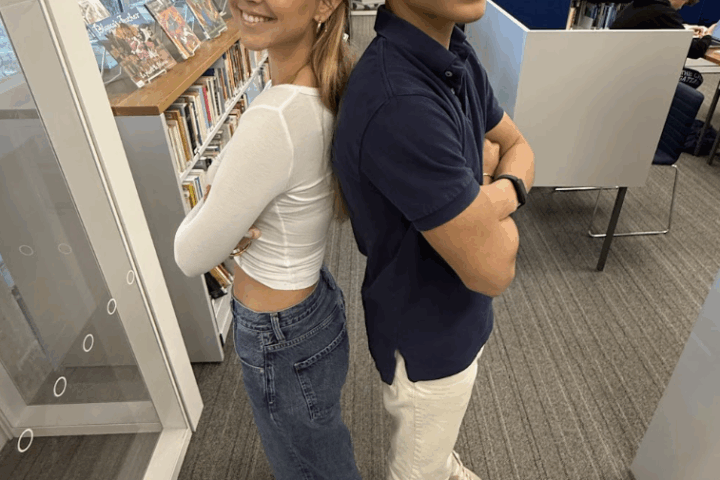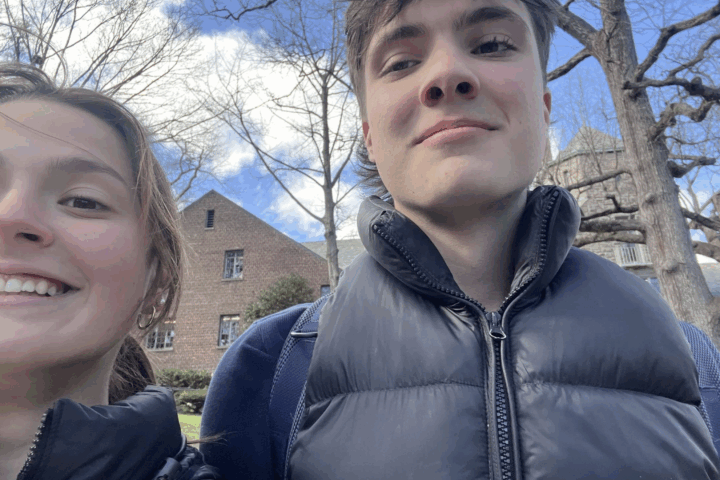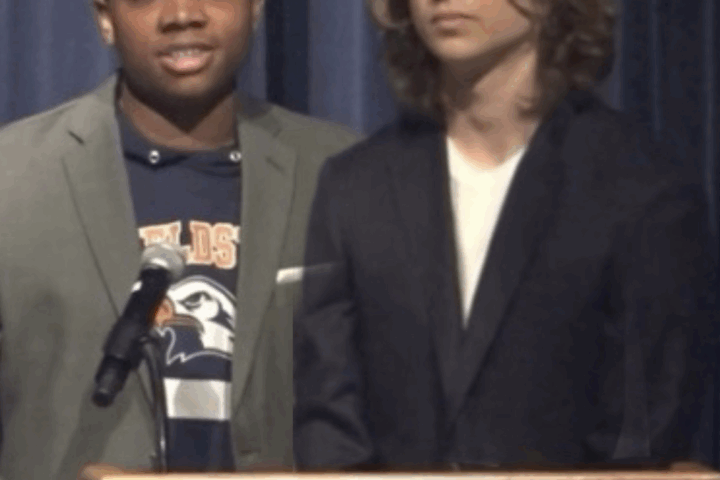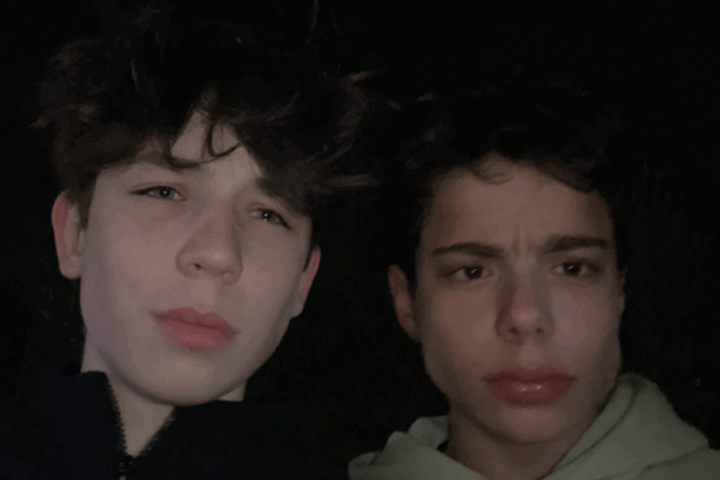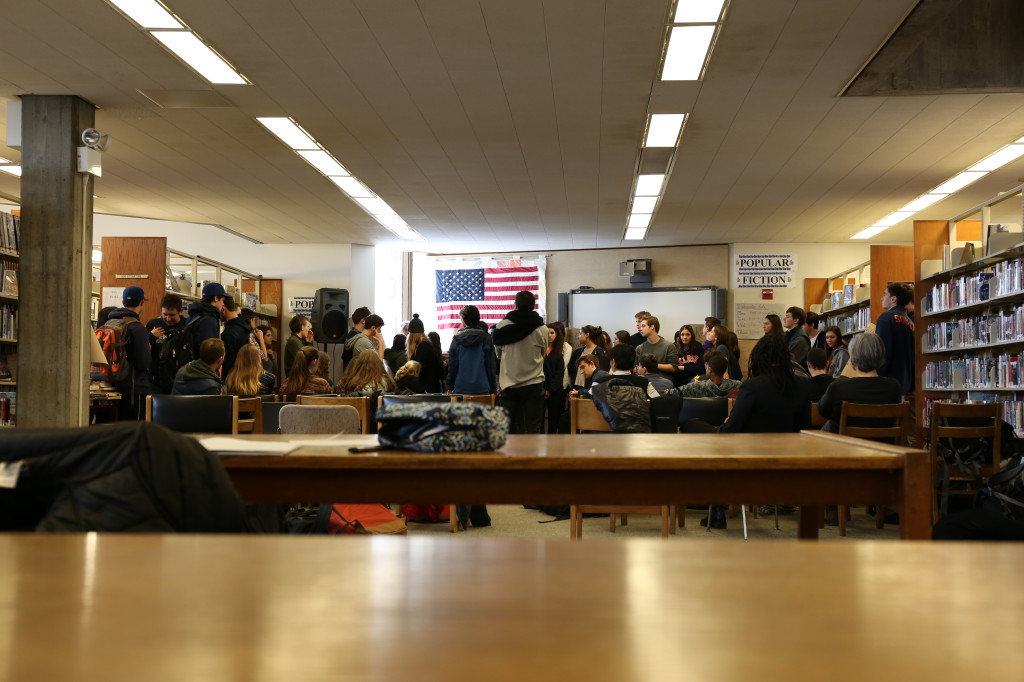
“During a time in our society when there is so much injustice, we cannot afford to be passive,” Mark Anthony Graham (V) said at the annual Martin Luther King Jr. Assembly on January 29. One of the main purposes of the assembly was to exhibit the parallel structures of the civil rights movement in the 1960s led by MLK Jr. and the Black Lives Matter movement that exists in 2015.
As students settled down in the auditorium, there were two YouTube videos playing simultaneously. One was the BBC collection titled “Civil Rights,” displaying black and white clips of marches and protests and violent acts of the KKK. The other was CNN footage of police brutality and an interview with a friend of Michael Brown.
Once everyone was seated, Daphne Thompson (VI) instructed the audience to take a second look at the two videos to try and take away something new. She explained that while as a nation we have come so far since the Civil Rights Movement, there is still too much racial inequality in this country. Daphne shared the shocking figure that while white woman make 77 cents to every dollar that a man makes, African American women make 49 cents to teach the community about the institutionalized racism that still exists in this country.
Ocean Gao (VI) drew connections between the experience of black people in this country and Asian people. She asserted that “We are told that we are the ‘model minority,’” explaining the competitiveness that exists between East Asian students in the college process. She spoke of how different minority groups feel the same lack of representation and how the media creates division between these groups.
One of the most powerful speakers was Mark Anthony Graham (V) who spoke of his personal experience. He grew up hearing hard stories about racial restrictions from his grandparents and wondered how it relates to him. “I walk in Riverdale and throw my hood up without thinking twice.” Mark owns the privilege he assumes by living in Riverdale and attending Fieldston, yet by the time he was fourteen his parents had warned him to be careful around cops and always carry some form of ID with him.
Lena Haimé (V) introduced the Black Lives Matter Movement, the hash tag that was created by three queer colored women when George Zimmerman killed Treyvon Martin. An issue that was discussed throughout the day was why only #blacklivesmatter and why not say #ourlivesmatter or #alllivesmatter? Lena argued that “We have to say #blacklivesmatter because of the humanity of black people that is never represented.” And while many people think that saying All Lives Matter is more inclusive, Lena made the point that, “the ‘all’ we refer to generally doesn’t include Black People,” and that she “refuse[s] to sit back and continue to witness injustice without speaking out in the critique of white supremacy.”
In the past few months students and faculty have been participating in protests and marches around the city to stand up to the racial injustices in this country. It was young people who marched in the 1960s with MLK and it is young people who march today. Tyler Nadasen-Gladstone (V) expressed that his desire to participate in the marches about the deaths of Michael Brown and Eric Garner was because he knew that MLK Jr.’s passion was amplified by the student participation in protests around the country and there would not have been change if it weren’t for young people.
This entire day, from the assembly and cross-graded discussion groups to the workshops were all credited to a dedicated group of students. Lena Haimé told the Fieldston News that in her opinion, “The goal of this MAD/assembly was to open dialogue about an issue that has a tremendous impact on many people in our community.” Another member of the planning committee, Caroline Carty (VI), told the Fieldston News that, “We initially wanted to have a Full Awareness Day of mandatory programming, to reach even those who feel uncomfortable or are averse to these discussions,” yet this was not possible due to scheduling.
Racial inequality is a subject that deserves more than just one day’s worth of discussion. It was clear from the cross-graded discussion group sessions, that seemed to run out of time quickly, that students and faculty are very passionate about standing up to the injustices that our country faces. Lena concluded her interview by saying that, “We have a responsibility as a school who values ethics to continue to thoroughly explore this.”


